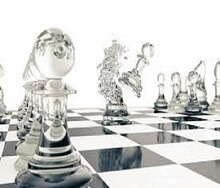Who invented chess
We human beings have been playing chess for more than 1400 years with different versions of it. It has attained an intellectual and cultural significance that many other activities cannot match. Chess is so deeply rooted in our lives that many individual games, such as Garry Kasparov's loss to the deep blue in 1997 or Bobby fishers' victory over Boris in 1972, have become a significant milestone in history. 
From where does chess originateThe earliest form of this game, now known as chess, can be traced back to India in the early 6th century. This game's predecessors were called chaturanga (catur) was played on an 8*8 grade, and it featured pieces that are generally similar to those in modern chess.
The arrival of chess in EuropeChess was introduced to Europe during the late 12th or early 13th century by many different routes, including entrance into Southern Europe by the empire of byzantine and into Spain by way of North Africa. From there, chess rapidly became popular in most of the European nobility and many eager sponsors were even fond of this game in the time of medieval kings.
Influence of Europeans on ChessSince the chess game reached Europe, many European players have introduced many mechanical and cosmetic changes in it, such as introducing many innovations like changing the names of various pieces of game and checker chess boards. These European players have introduced the change in the name of the pieces to reflect significant medieval European figures like bishops, rooks (The rook's name may have come from the Italian language, which means "fortress"), and knights.
Development of chess into a competitive sportAround the 19th century, chess had become a fixture in a modern European's life. Many European players have joined and created various chess clubs, and chess problems have become fixtures of major newspapers. Let's have a look atsome chess tournaments and their first edition:
The first international tournament of chess was played in the year 1951, in London, U.K. The international chess tournament also led to developing speed chess variations, modern timekeeping games, and sealed moves.
The first world chess championship was organized in the year 1886, and the London city of the U.K too hosted this world championship. The Austrianplayer who later became American, Wilhelm Steinitz, was the first undisputed world chess champion. He was also the one who first exemplified the highly romantic and aggressive style of the period, but later on, he theorized and developed the position style of playing chess. The position style of playing chess would also come in the 20th century to dominate worldwide. Many other historical developments in chess
Important chess players during the 20th century:
Memorable games in chess history:
How the computer's era changes the Chess Game?The advancement in computer chess and bot chess players that have even beaten the game's best players from history has ramifications for chess dramatically. After introducing computer chess, Players can now access the database and consult to look out for millions of games in it to identify their errors. It has also allowed players worldwide to find out many new brilliant moves of the game called novelties. The novelties are the new moves in chess that have never been played before in any game. In today's time, no particular style in chess dominates the game. The emerging world chess champions are famous for playing or starting their games with varieties of openings that make the opponent keep guessing.
Next TopicWho invented cricket
|
 For Videos Join Our Youtube Channel: Join Now
For Videos Join Our Youtube Channel: Join Now
Feedback
- Send your Feedback to [email protected]
Help Others, Please Share










